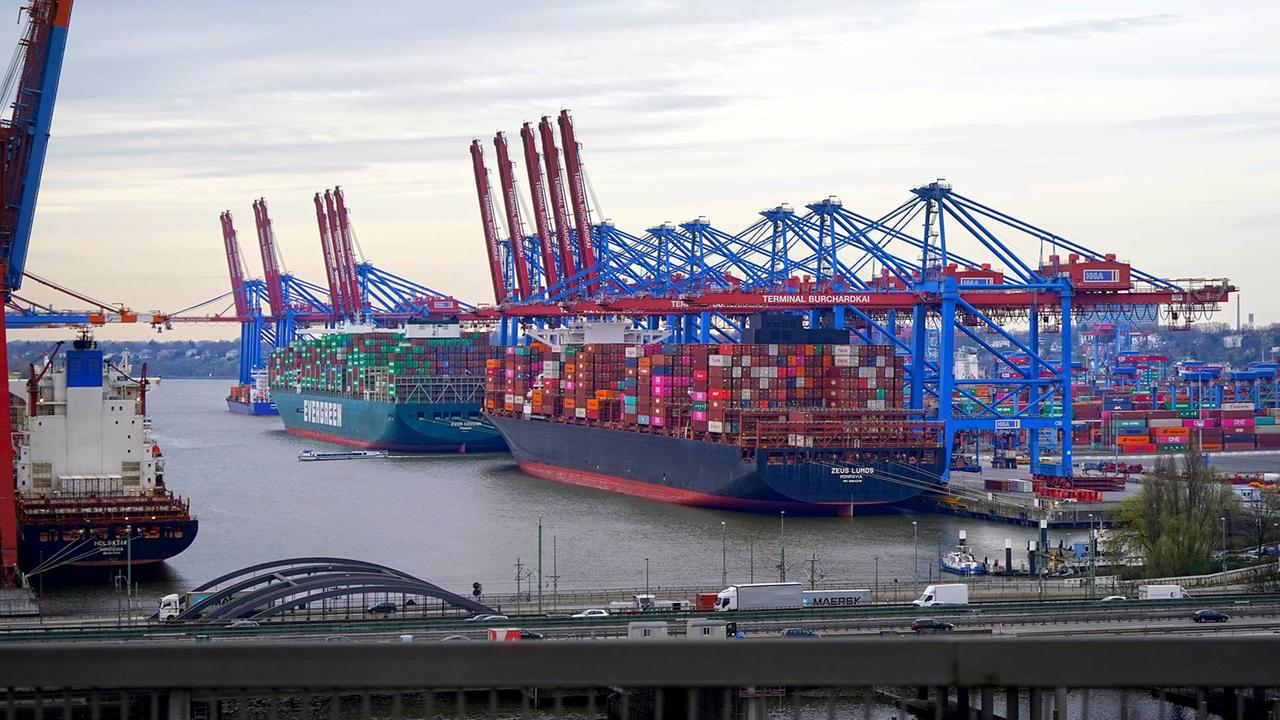The mood in the German economy is becoming increasingly pessimistic. The ifo index has fallen for the third time in a row – the crisis is clearly taking hold.
The mood among companies in Germany has noticeably deteriorated. The business climate index of the Munich-based ifo Institute fell to 87.0 points in July, after 88.6 points in June. Companies were less satisfied with current business. With a view to the coming months, scepticism has noticeably increased. The German economy is stuck in the crisis.
The mood is particularly bad in industry, says ifo President Clemens Fuest in an interview with dailynews24There is little investment in Germany, which means fewer orders are going to industry.
Collapse in all sectors
The business climate in the manufacturing sector has deteriorated significantly. In particular, assessments of the current situation were significantly worse. Expectations also became more subdued. Order backlogs were again declining. Capacity utilization fell to 77.5 percent, six percentage points below the long-term average.
The business climate has also worsened in the retail sector. Companies were less satisfied with their current business. This applies in particular to retail. There were also greater doubts about expectations. The index also fell in the construction sector. Companies assessed their business situation as somewhat worse. Expectations remained almost unchanged and marked by clear pessimism.
Demand for consumer goods is not going well, said Fuest. “It was actually expected this year that rising incomes would lead to more money being spent. But people are saving more than expected.” There is no economic recovery from that side either. “And that is leading to this rather poor overall picture. The German economy is simply not emerging from this crisis,” continued the ifo President.
Service providers pessimistic
Even in the services sector, the index has fallen again after recovering in recent months. This was mainly due to more pessimistic expectations. Service providers also assessed their current situation somewhat less positively.
Robin Winkler, chief economist for Germany at Deutsche Bank, said: “The disappointingly weak ifo business climate index confirms the message of yesterday's purchasing managers' index: the economic upturn is taking a summer break.”
Also the Purchasing Managers Index sinks
Most recently, the purchasing managers' index for the local private sector put a major damper on hopes for an upturn: in July, the barometer fell below the growth threshold of 50 points for the first time in four months, as S&P Global recently announced.
The economy had only just recovered somewhat: from the Bundesbank's point of view, it continued to recover and is likely to have grown slightly in the spring as well. At the beginning of the year, Germany narrowly avoided a recession with slight growth of 0.2 percent, after gross domestic product shrank by 0.5 percent at the end of 2023.
Reasons for the Economic downturn
In Fuest's view, the current economic downturn is also linked to fundamental problems, including the growing bureaucratic burden, high taxes and a shrinking working population. Added to this are geopolitical risks: “The concern that increasing protectionism will lead to more investment abroad.”
This does not look good for the German economy, says Thomas Gitzel, chief economist at VP Bank. There are many reasons for this. China's weak development is particularly hard on Germany. “But it's not just China, the general rule is that global industry is currently going through a period of weakness, which is particularly painful for Germany.”
Can the growth package help?
Last week, the cabinet agreed on the so-called growth package. Plans include tax relief, more incentives to work and better depreciation conditions for companies. However, it is not yet clear whether the federal government's growth measures can be implemented in this way, according to ifo President Fuest.
Overall, these are fairly small steps and: “More needs to be done.” In order to stimulate the economy, Fuest names several points that need to be addressed. For example, creating better tax conditions for starting a business or restructuring the citizen's income system to make work more interesting. Fuest also emphasizes the reduction of bureaucracy. What has been decided is too weak to counteract. Nevertheless, it is a step in the right direction. “We need a real change in economic policy.”




